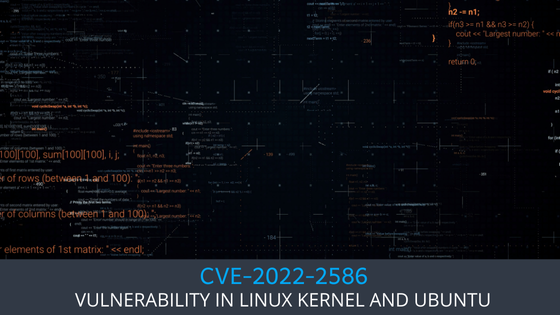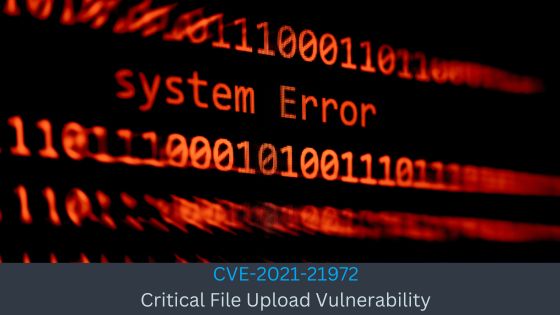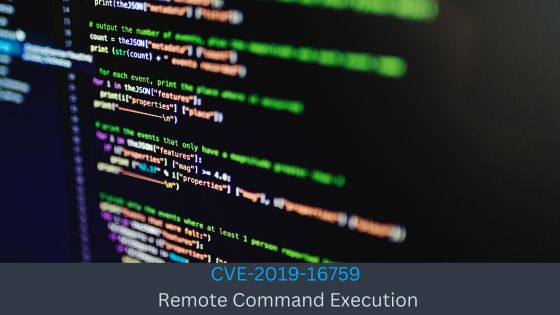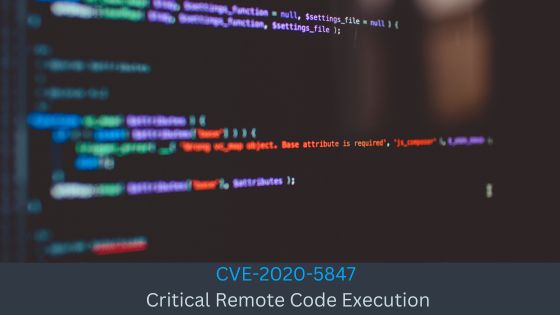Recently, a critical security issue identified as CVE-2022-2586 was reported, affecting the Linux kernel and various Ubuntu versions. This vulnerability underscores the importance of robust system management and timely updates. This article explores the vulnerability’s characteristics, potential impacts, and steps for mitigation.
Exploring CVE-2022-2586
CVE-2022-2586 involves a use-after-free error in the Linux kernel, particularly when a network traffic control (nft) object or expression references a set on a different nft table. The error occurs once the referenced table is deleted, posing a serious threat to system stability and security.
Technical Details of CVE-2022-2586
The vulnerability has been assessed with a CVSS score of 7.8 (HIGH) by the National Vulnerability Database (NVD) and a 5.3 (MEDIUM) score by Canonical Ltd., indicating significant risk.
The flaw results from inadequate handling of memory objects within the kernel, specifically within the netfilter subsystem, which leads to a use-after-free scenario.
Potential Impact
Successful exploitation of this vulnerability allows attackers to:
#1 Cause system crashes, leading to denial of service conditions.
#2 Potentially execute arbitrary code with kernel privileges if further exploited.
Mitigation Strategies
Patches and updates have been released to address CVE-2022-2586. It is crucial for users and administrators to apply these updates promptly:
Kernel Updates: Ensure the Linux kernel is updated to the latest version that includes a fix for CVE-2022-2586.
Ubuntu Patches: Ubuntu has released specific patches for this vulnerability across multiple versions, including 14.04 ESM, 16.04 ESM, 18.04 LTS, 20.04 LTS, and 22.04 LTS.
Alternative Actions
For environments where immediate patching is not feasible:
System Monitoring: Enhance monitoring to detect anomalies that may indicate exploitation attempts.
Network Segmentation: Employ network segmentation and strict access controls to minimize the risk of exposure.
Best Practices for System Security
Maintaining up-to-date systems is crucial in protecting against vulnerabilities like CVE-2022-2586. Regularly scheduled updates and patches can significantly reduce the risk of critical security flaws.
Robust System Configurations
Configure systems securely to minimize vulnerabilities and reduce the potential impact of exploits. This includes disabling unnecessary services and applying the principle of least privilege.
Monitoring and Response
Implement comprehensive monitoring solutions to detect and respond to security incidents rapidly. Effective incident response plans can mitigate potential damages and restore services quicker.
Conclusion
CVE-2022-2586 presents a significant challenge, particularly for systems that rely on stable and secure Linux kernel operations. Understanding the vulnerability and implementing the recommended actions is essential for maintaining secure IT environments.
For further guidance and customized cybersecurity solutions, reach out to Datacipher. Our experts are equipped to help you navigate the complexities of network and system security, ensuring your technology assets remain protected against emerging threats.





